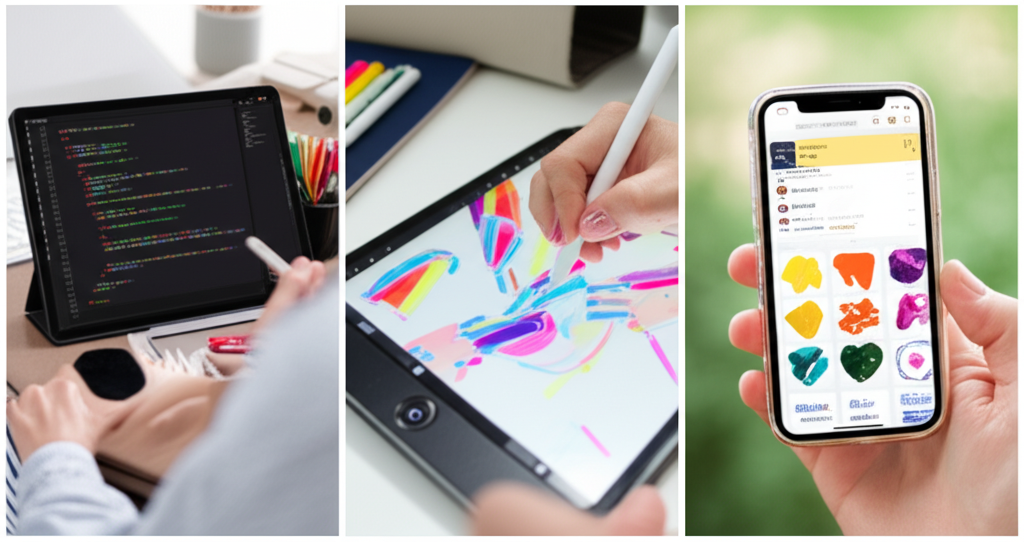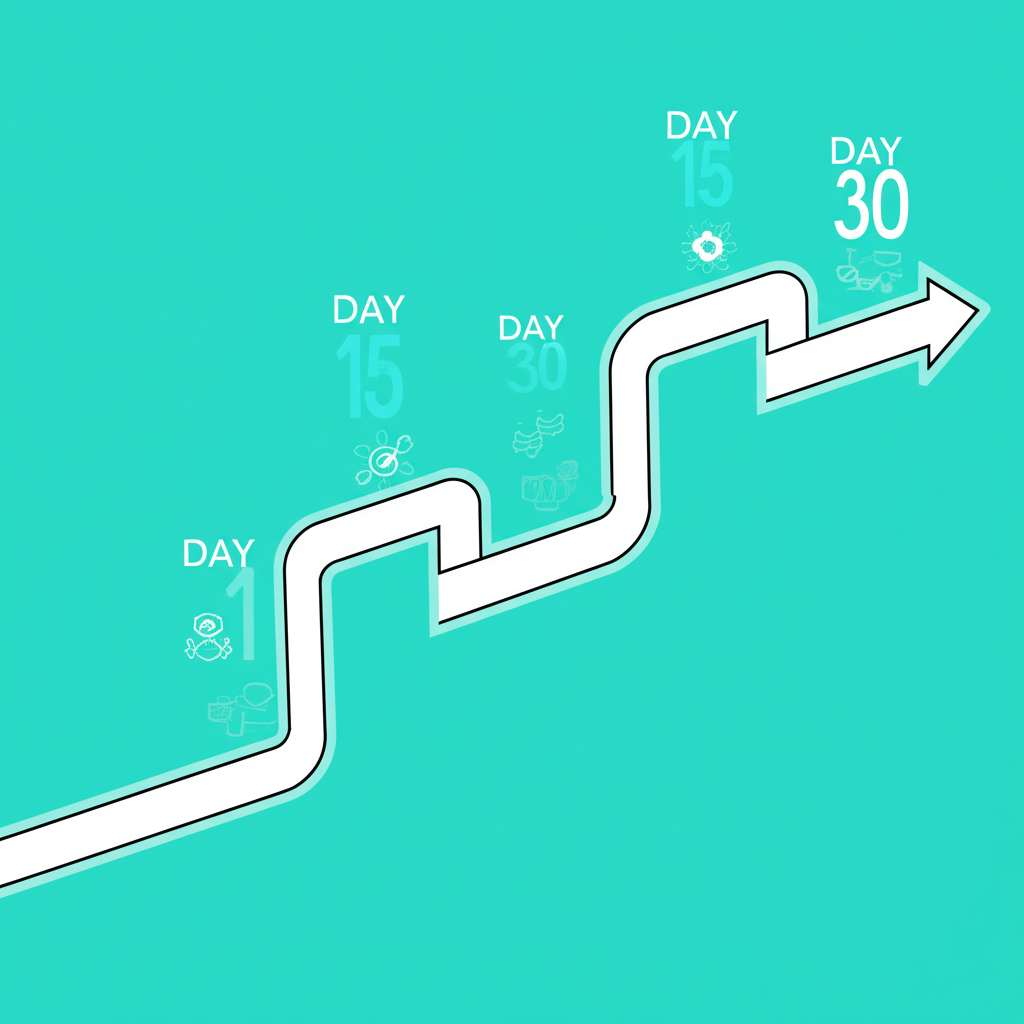Imagine unlocking a new skill, shifting your perspective, or even kickstarting a career change, not over years, but in just 30 focused days. This kind of significant personal or professional transformation is becoming more accessible than ever thanks to the vast resources available online. Historically, learning new things often meant high costs, rigid schedules, and significant time commitments, creating barriers for many.
However, the rise of free online learning platforms has democratized education. These platforms offer a powerful, low-barrier solution for anyone looking to grow. What’s exciting is the possibility of achieving noticeable, truly ‘life-changing’ progress within a short, dedicated timeframe – say, just 30 days. According to Coursera’s 2024 Global Skills Report, millions worldwide are leveraging online learning for career advancement and personal enrichment.
This post will explore how you can make significant strides in just one month using free online classes. We’ll delve into where to find the highest quality free educational content and highlight which types of classes are best suited for rapid, impactful change across various aspects of your life. Consider this your roadmap for a focused, transformative 30-day learning sprint.

The Transformative Power of a Focused 30 Days
The concept of a 30-day challenge is powerful because it aligns with fundamental psychological principles. It’s a timeframe long enough to build momentum and begin forming new habits, yet short enough to feel achievable and less overwhelming than a year-long commitment. Setting a goal for 30 days creates focus and encourages consistency.
In this context, ‘changing your life’ doesn’t necessarily mean becoming a world expert in 30 days. It realistically means gaining foundational skills, adopting a new perspective, starting a healthy habit, opening doors to new opportunities, or building tangible confidence in a new area. It’s about creating significant initial traction and a mindset shift that can propel you forward.
Unlike long-term academic study, a 30-day sprint emphasizes targeted effort and consistency in one or two key areas. The goal is not exhaustive mastery but significant progress, practical application, and building a launchpad for continued growth. By committing just a few weeks, you can achieve remarkable initial results.
Navigating the Landscape: Choosing Your Path to Change
The first step in your 30-day journey is selecting the right focus. With countless free courses available, identifying your target is crucial for impactful change. Ask yourself some key questions for self-assessment:
- What problem do I want to solve in my life (e.g., get a better job, manage stress, start a hobby)?
- What skill is holding me back from achieving a specific goal?
- What have I always wanted to learn but haven’t made time for?
- Which area of my life genuinely needs improvement right now (career, health, creativity, relationships)?
Aligning your class choice with specific, measurable goals achievable in 30 days is key. Instead of “Learn to code,” aim for “Complete an intro Python course and build a simple text-based game.” Think about different categories of transformation: Career/Skills, Personal Growth/Well-being, or Creative/Hobby exploration. Within your chosen area, starting with introductory or foundational courses is wise; they build a solid base quickly.
Top Free Platforms Hosting Life-Changing Courses
Finding high-quality free courses is easier than ever, thanks to numerous reputable platforms. Here are some of the best places to start your search:
- Coursera: Offers courses from top universities and companies. Many courses can be audited for free, giving you access to lectures and materials without a certificate.
- edX: Similar to Coursera, providing access to university-level courses, many available for free audit.
- Udacity: Known for tech and business courses. While many programs are paid, they offer some free courses covering foundational topics.
- Khan Academy: Excellent for foundational subjects like math, science, economics, and computing, covering K-12 through early college levels, highly relevant for adult refreshers or new learners.
- FutureLearn: Features courses from UK universities and cultural institutions, often with a social learning focus. Many courses have a free access tier.
- Google Digital Garage: Offers free courses specifically focused on digital skills, marketing, and career development.
- HubSpot Academy: Provides free training and certifications in marketing, sales, customer service, and website design.
- freeCodeCamp: A comprehensive, interactive platform for learning to code through lessons and building projects.
- YouTube: While less structured, many channels offer deep dives into specific skills. Requires careful selection to find reputable, organized content.
- MIT OpenCourseware: Provides free access to materials from MIT courses, including lecture notes, assignments, and exams. Less interactive but a treasure trove of knowledge.
When exploring platforms with paid options, look for “audit” options or specific free course filters to access the valuable free content.

Impactful Free Classes: Examples for a 30-Day Sprint
| Transformation Area | Example Course Type | Potential 30-Day Impact |
|---|---|---|
| Career & Skill | Intro to Programming (e.g., Python) | Understand code logic, automate simple tasks, build foundation |
| Personal Growth | Mindfulness & Meditation Fundamentals | Reduced stress, improved focus, better emotional control |
| Creative & Hobby | Photography Basics (Composition, Light) | Take more compelling photos, gain a new creative outlet |
Let’s look at a few more examples within each area:
Career & Skill Acceleration (Examples)
- Introduction to Python Programming: Learn basic syntax, data types, and control flow. Impact: Ability to automate small tasks, understand code, foundation for data science/web dev.
- Digital Marketing Fundamentals: Cover basics of SEO, social media marketing, content marketing. Impact: Better understand online business, improve small business presence, foundation for marketing roles.
- Project Management Essentials: Learn basic methodologies, planning, and execution concepts. Impact: Better organize personal projects, understand project workflows in the workplace.
Personal Growth & Well-being (Examples)
- The Science of Well-being: Based on psychological research for increasing happiness. Impact: Actionable techniques for improving mood and life satisfaction, healthier habits.
- Learning How to Learn: Strategies for effective studying, memory, dealing with procrastination. Impact: Improved ability to acquire any new skill, more efficient learning.
- Effective Communication Skills: Focuses on listening techniques, clear expression, and conflict resolution basics. Impact: Improved relationships, better professional interactions, increased confidence.
Creative & Hobby Exploration (Examples)
- Fundamentals of Graphic Design: Covers basic principles (color, typography, layout) and intro to design tools. Impact: Ability to create basic visuals, better aesthetic appreciation, foundation for design hobbies/work.
- Creative Writing: Crafting Characters: Focus on developing compelling characters for stories. Impact: Ability to create more engaging narratives, start a writing practice.
- Introduction to Drawing: Basic sketching techniques and understanding form. Impact: Ability to draw simple objects, stress relief, creative skill development.
These examples show how focused learning can yield tangible results in a short time.
Structuring Your 30-Day Learning Journey for Success
Committing to learning for 30 consecutive days requires structure. Start by setting realistic, specific goals for the month. Instead of a vague goal like “Learn about marketing,” aim for “Complete the HubSpot Introduction to Inbound Marketing course and earn the certification” or “Practice Python coding exercises for 30 minutes daily.”
Creating a consistent schedule is vital. Allocate specific time slots each day or week dedicated solely to your course. Treat it like an important appointment. Find a dedicated learning space free from distractions.
Use active learning strategies to maximize retention. Take notes in your own words, summarize lessons, or try explaining concepts to someone else. Immediately practice the skill: apply marketing concepts to your social media, use coding skills for a small project, or practice meditation techniques daily. Track your progress and celebrate milestones, no matter how small. Connect with fellow learners if the platform allows for support and motivation.
If you encounter challenges – difficult material, loss of motivation, falling behind – don’t give up. Break down complex topics, review previous material, adjust your schedule if necessary, and focus on getting back on track rather than striving for perfection. The goal is learning and progress.
Beyond 30 Days: Sustaining Momentum
Completing a 30-day learning sprint is a significant accomplishment, but it’s often just the beginning. After your initial push, think about how to sustain the momentum you’ve built. You might continue learning by finding intermediate or advanced courses in the same subject, or explore related topics that complement your new skills.
Crucially, look for ways to apply your skills in real-world scenarios. This could involve starting a personal project, volunteering your new skills, contributing to open source projects if you learned coding, or finding ways to incorporate your new knowledge into your current job. Practical application solidifies learning and opens new doors.
Joining online communities or local networks related to your new skill provides ongoing support, practice opportunities, and connections that can lead to future growth. Take time to reflect on the transformation you achieved in just 30 days. Leverage that confidence and the demonstrated ability to learn and grow for your next challenge. Remember, 30 days is a powerful start to what can become a lifelong learning journey.
Conclusion
Free online classes offer a genuinely tangible and accessible path to significant personal change and skill development. As we’ve seen, by focusing your effort, choosing the right resources, and committing consistently, you can achieve remarkable progress in a concentrated 30-day timeframe.
The key takeaways are simple yet powerful: identify your specific goal, select a high-quality free resource aligned with that goal, and dedicate consistent time and effort every day for one month. This focused sprint allows you to bypass traditional barriers and gain valuable knowledge or skills quickly.
Taking that first step and dedicating just 30 days to focused learning can unlock incredible potential. Whether you aim to boost your career, improve your well-being, or explore a new creative passion, the power to initiate that change is freely available at your fingertips.
FAQ
Q: Are free online courses truly high-quality?
A: Yes, many reputable universities and organizations offer free versions or audits of their courses on platforms like Coursera, edX, and others. Quality can vary, so check course reviews and instructor credentials when possible.
Q: How much time do I need to commit daily for a 30-day sprint?
A: This depends on the course and your goal, but even 30-60 minutes of focused learning and practice daily can lead to significant progress over 30 days. Consistency is more important than long, infrequent sessions.
Q: Can I really change my career path with only free courses in 30 days?
A: While 30 days might not make you an expert ready for an advanced role, it can absolutely help you gain foundational knowledge, learn essential skills, create basic projects for a portfolio, and understand if the field is right for you. This can be the critical first step in a career change journey.
Q: How do I stay motivated for 30 days?
A: Set clear, achievable goals; track your progress; schedule learning time; eliminate distractions; connect with other learners; and regularly remind yourself of your motivation for starting the course.
Q: What if I fall behind in the course schedule?
A: Don’t get discouraged. Free courses are often self-paced or allow flexibility when auditing. Review the material you missed, adjust your schedule if necessary, and focus on getting back on track rather than striving for perfection. The goal is learning and progress.

